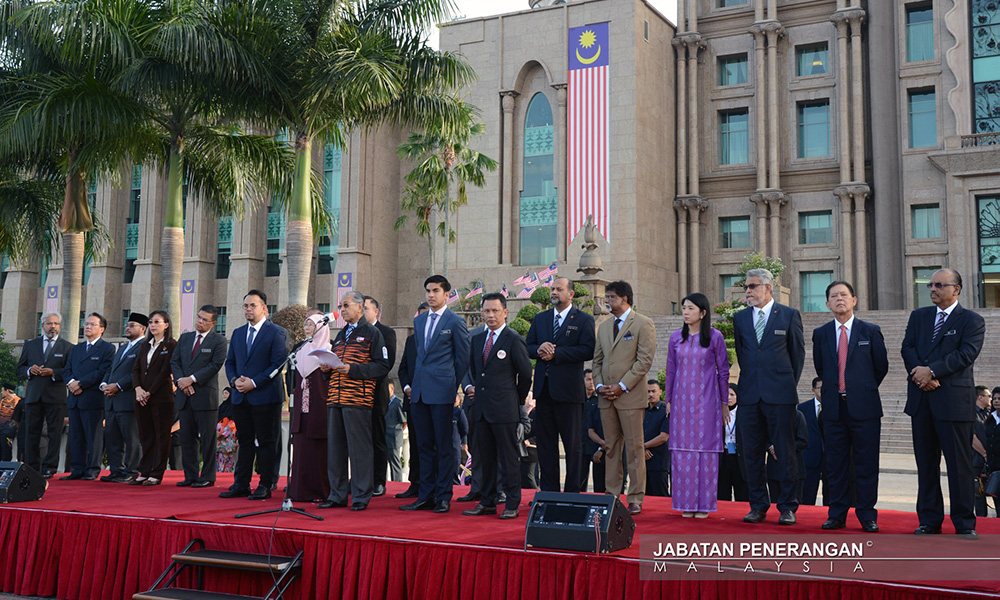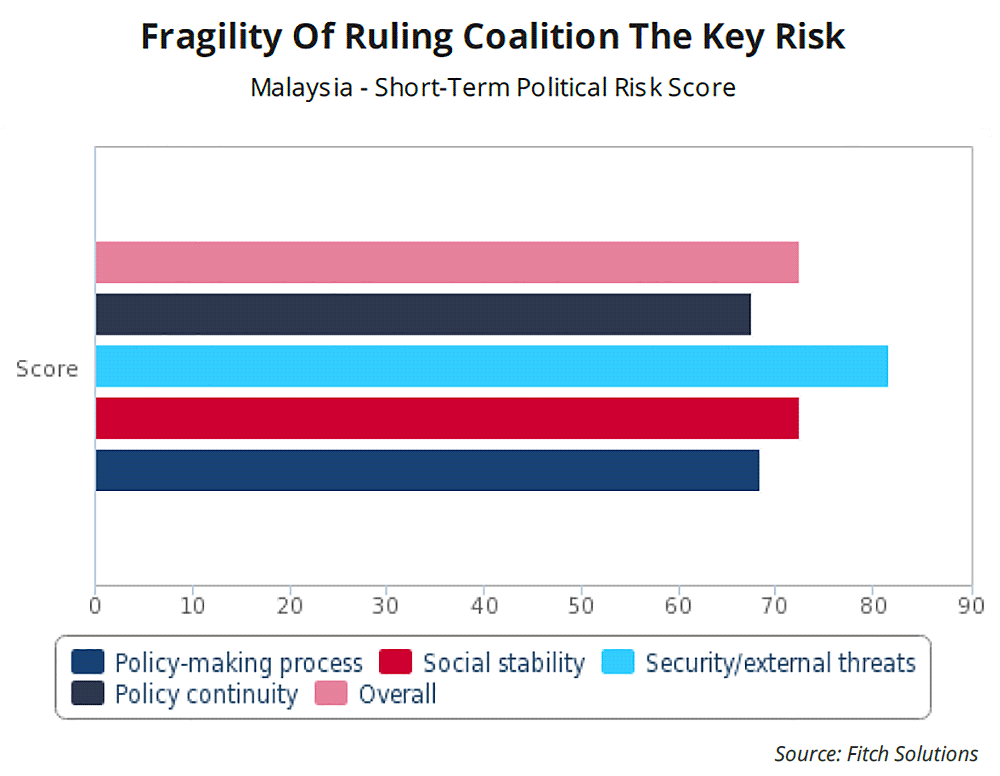Fitch Solutions Macro Research has predicted a drop in Pakatan Harapan's popularity in the coming months, due to, among others, its policies and infighting within the coalition.
The research firm noted that while the dissolution of Harapan is not the study's core view, the risk of that happening is rising.
"Our view at Fitch Solutions is that Harapan runs the risk of a drop in its popularity for three reasons - first, the electorate may increasingly take the view that the government is not helping to reduce the living costs.
"Second, the coalition's repeated public displays of disunity; and third, the electorate's disillusionment with the idea that the Harapan government will usher in a 'New Malaysia' with a greater degree of racial equality," the firm said in a statement.
As such, Fitch Solutions rated Malaysia's short-term political risk score at 72.5 out of 100, with the 'policy-making process' and 'policy continuity' being the weakest sub-components at 68.3 and 67.5, respectively.
The firm cited Harapan's failure, thus far, to keep to some of its election promises, such as standardising the minimum wage to RM1,500 a month and reintroducing fuel subsidies, as points of contention.
"The government did raise the minimum wage to RM1,050, from Jan 1, and set aside RM3 billion to implement fuel subsidies in the form of a fixed price from June 7, 2018, to the end of the year; the allocation for the subsidy was reduced to RM2 billion for the entirety of 2019, and the scheme was altered to a managed float instead.

"With crude oil prices still likely to mount a recovery in 2019 from current Brent spot prices of US$62.21/bbl as of Jan 31, Malaysians will likely face higher fuel prices under the managed float system over the course of 2019.
"These measures, while positive for the country’s fiscal outlook, risk a decline in Harapan’s support among the electorate," Fitch Solutions said.
The partially fulfilled pledges, coupled with a planned 40 sen sugar tax on fruit juices and sodas, set to take effect from April 1, are likely to displease an electorate already complaining about the high costs of living, the firm noted.
Plagued by infighting
It then gave examples of public displays of disunity among Harapan's component parties, which would further negatively impact public opinion on the ruling coalition.
"The latest reported incident involved the Youth and Sports Minister, Syed Saddiq Abdul Rahman, also the Youth chief of Prime Minister Dr Mahathir Mohamad’s party Bersatu, calling for the resignation of the Minister in the Prime Minister’s Department in charge of national unity and social well-being, P Waythamoorthy, over the Seafield temple riots in November 2018.
"Syed Saddiq’s call for Waythamoorthy's resignation was condemned by key DAP figures, including Penang Deputy Chief Minister II P Ramasamy, who charged that the 26-year-old had broken collective ministerial responsibility.
"Syed Saddiq remained defiant despite the blowback, saying that he would ‘never apologise for speaking my mind’ and that he did not enter politics to be a ‘yes-man’."
The third factor that would contribute to Harapan's loss of popularity is the government's slow move towards transforming Malaysia into a more 'equal society' in terms of race relations, noted the firm.

Despite making a series of racially progressive appointments, such as appointing Lim Guan Eng to the finance portfolio and making Tommy Thomas the attorney-general in the earlier days it came to power, the coalition later backed down on its announced plan to ratify the International Convention on the Elimination of All Forms of Racial Discrimination (Icerd), possibly due to threats of unrest among the Malay majority, Fitch Solutions said.
"The existing tension in Harapan leads us to believe that a substantial fall in its popularity could result in an escalation of the infighting among its component parties.
"While a dissolution of the government due to this is not our core view, the risk of such an outturn would naturally increase should inter-party tensions rise.
"This would especially be the case if the government were to show continued favouritism to majority ethnic Malay voters, which could alienate ethnic minorities."
"The other component parties, particularly the DAP, could then feel the need to stake out more racially driven positions in order to maintain the support of the minorities and such a development could foster a greater degree of disunity in the government before its term runs out in 2023," Fitch Solutions concluded.


